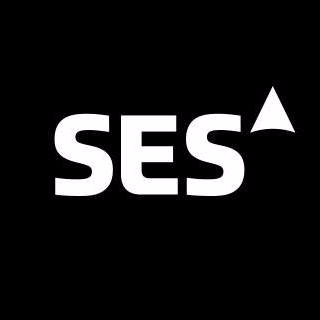SES: Owning a LEO system could be next
March 1, 2024

For the best part of 20 years, under the tenure of successive CEO’s Romain Bausch, Karim Michel Sabbagh and Steve Collar, the accepted mantra was that SES did not need a Low Earth orbiting (LEO) fleet of satellites.
That position might now be very different under new CEO Adel Al-Salah who has been in post for just one month, admitted to analysts during the February 29th SES post-results discussion that the possibility of SES investing in a LEO constellation was no longer taboo.
While accepting that its O3b mPOWER Medium Earth orbiting (MEO) fleet represented a must faster route to global coverage (once the fleet was fully populated) but stated that there were inevitable gaps in the sort of coverage SES could supply.
Inevitably – although unsaid – was the missed revenues from the rival LEO positions of O3b/OneWeb (owned by Eutelsat) as well as the threats from a half-dozen other operators, not least Telesat’s Lightspeed.
Reacting on X, Declan Ganley, CEO of Rivada Networks, based in Munich, said: “If only there was already a European operator headquartered in, oh, say, Munich, with employees from all over Europe and that had the very top priority Ka Band LEO satellite spectrum and excellent polar orbital slots, had already raised (a lot) of private capital, had contracts in place to build and launch its constellation and would be ready to turn on service in say 2025…”
Rivada has its first batch of 300 satellites on order (with Terrain Orbital) and another 300 in its pipeline.
SES uses capacity from Elon Musk’s Starlink to fill some of those gaps. Al-Salah told analysts: “Every partnership we launch has to be accretive to us. The idea is not to have a war between us and our competitors. We are focused on our clients and if a combination between us and a competitor makes a lot of sense for the client and gives a positive return to us, an accretive deal, then we will do it. We would not do a deal that takes away margin from us or abuses our opportunity with the client.”
One of the analysts on the call was Sami Kassab of investment bank BNPP. Kassab commented: “SES is not out of the woods yet, but its fundamentals are improving. Q4 revenues are ahead of expectations and the FY24 revenue outlook looks stronger too. EBITDA is guided in line with higher start up costs offset by a strong top line guidance. Management is striking the right balance between balance sheet protection and cash returns. mPOWER is guided to enter into service in early Q2 2024 and has seen its backlog progress further in the last three months. SES offers an 8 per cent dividend yield reflective of investor concern that it may fail to return to growth.”
Other posts by Chris Forrester:
- Intelsat C-band ‘insider trading’ case dismissed
- UK Space Agency funds de-orbit scheme for OneWeb
- AST SpaceMobile to launch satellites in August
- SpaceRISE silent on reports of demise
- Project Kuiper seeks India licence
- FAA suspends SpaceX launches
- SpaceX vs AST SpaceMobile
- Eumetsat explains Ariane 6 cancellation
- AST SpaceMobile examines emergency call obligations
